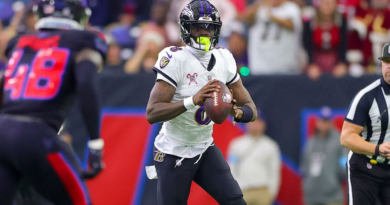Michigan State hires Mark Dantonio while touting pivot from 'MSU of old'
Mark Dantonio returned to Michigan State’s campus this week as an official member of the coaching staff for the first time since his sudden retirement in February 2020, stepping in to help the staff after the school suspended head coach Mel Tucker amid a sexual harassment investigation.
At a news conference Sunday announcing Tucker’s suspension and the move to bring back Dantonio, Michigan State interim president Teresa Woodruff sought to draw a distinction between how the “MSU of today” was handling the investigation, versus how the “MSU of old” responded to other high-profile accusations of sexual misconduct.
But Dantonio, who coached Michigan State through one of the most successful eras in program history on the field, also presided over the team during the “MSU of old,” a time when the athletic department was accused of mishandling sexual misconduct complaints. He has himself been accused of interfering in at least one case and repeatedly refused to answer questions about his role in bringing highly touted recruit Auston Robertson to campus despite the player’s history of alleged sexual misconduct.
Woodruff did not take any questions Sunday, but when ESPN asked this week whether she had any concerns about the coach’s return, a university spokesperson said the president “fully supports [athletic director Alan] Haller’s decision to bring Dantonio back to the coaching staff.”
“Mark Dantonio is a man of integrity,” Haller told ESPN in a separate statement on Wednesday. “Since his retirement, he’s continued to be a presence and a unifying force in the MSU community. When I called him, he selflessly offered to do whatever he could to help the football program.”
Dantonio did not respond to a phone call Wednesday seeking comment.
Haller said Sunday that Dantonio, who coached Michigan State from 2007 through 2019, is an exceptional football coach and would be a “tremendous asset” for interim head coach Harlon Barnett. Barnett worked as an assistant under Dantonio and said Tuesday he expected his old boss will be a “calming presence” who will help with “all aspects of the operation” as the team tries to find its bearings.
“I’m glad he’s here. I love me some Coach D,” Barnett said Tuesday. “That’s my guy.”
Dantonio’s record at Michigan State included three Big Ten championships and peaked with a trip to the College Football Playoff in 2015. His teams went 27-24 in his last four seasons as head coach.
Also during Dantonio’s 13-year tenure, at least 16 Michigan State football players were accused of sexual assault or violence against women, according to interview and public records obtained by ESPN and published in a 2018 report. A former university counselor said that in at least one instance Dantonio directly intervened in a case in a way that she thought was inappropriate.
Dantonio declined to be interviewed for the 2018 story, but later said the notion that his program had mishandled any claims of abuse was “completely false.”
Dantonio retired following the 2019 football season in early February 2020, an unorthodox time in the football calendar for a coach to leave a program. His departure came weeks after he collected a $4.3 million longevity bonus and hours after former staff member Curtis Blackwell alleged in a federal lawsuit that Dantonio had committed NCAA recruiting violations. Blackwell also said as part of the same legal claims that Dantonio ignored warnings from his fellow coaches about a recruit who eventually was convicted of sexually assaulting a fellow Michigan State student.
Dantonio said in 2020 that the lawsuit had “zero” impact on his decision to retire. Blackwell filed two federal lawsuits and another in state court, all three were dismissed.
Blackwell claimed in his lawsuit that he was made a scapegoat by Dantonio and others at Michigan State during a 2017 investigation into how the football program and athletic department handled two sexual assault cases involving four different football players. The investigation, conducted by the Jones Day law firm, cleared Dantonio of any wrongdoing and found that Blackwell did not properly report what he knew about one of the alleged sexual assaults to police or Title IX investigators.
In one of those cases, three freshmen — Josh King, Donnie Corley and Demetric Vance — pleaded guilty to a charge of seduction after they were accused of sexually assaulting a woman at a party. The seduction charge is based on an antiquated law that allowed the players to plead guilty to a crime without addressing whether the woman consented to sex. The woman’s parents told the judge they were disappointed that the athletes were able to strike a plea deal that did not, in their opinion, effectively deter similar crimes from happening in the future.
“This case represents everything that is wrong at Michigan State University, especially in the athletic department,” her parents said.
Robertson, a classmate of those players, pleaded guilty in 2018 to assault with intent to commit criminal sexual penetration after he was accused of raping a teammate’s girlfriend. Dantonio kicked him off the football team in 2017 after he was initially charged with the crime. King, Corley and Vance were also kicked off the team.
Robertson, a defensive end, received a scholarship despite a long list of past accusations of sexual crimes while he was in high school. Dantonio said the school vetted Robertson thoroughly and “took a risk” by inviting him to campus.
“We’ve never intentionally brought a guy in here and said, ‘Hey, that guy’s going to be a bad guy,'” Dantonio said after dismissing Robertson.
Two years later, Blackwell — who helped coordinate Michigan State’s recruiting efforts — said in a lawsuit that multiple assistant coaches warned Dantonio that they were uncomfortable with bringing Robertson to campus. To date, Dantonio has never answered questions about the details of Robertson’s vetting process or Blackwell’s claim.




